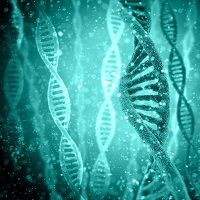Article
New Clues in Down Syndrome
Author(s):
Bronx researchers believe they may have solved part of the mystery of why older mothers have a higher risk of having Down syndrome babies.

Bronx researchers believe they may have solved part of the mystery of why older mothers have a higher risk of having Down syndrome babies.
Writing in Nature Communications, Adam Auton, PhD, an assistant professor of genetics and of epidemiology & population health at Albert Einstein College of Medicine of Yeshiva University reports on his team’s analysis of data from 23andMe, the consumer genetic testing company.
Their research focused on the exchange of genetic material during cell meiosis. They found that the rate of this recombination process changes as women age, and that in older women these recombination events happen in close proximity. In younger women, the events are more regulated in that they are evenly spaced out.
“The greater rate of recombination we observed in the chromosomes of older mothers could imply that this tight regulation becomes weaker with age,” Auton said. That lack of regulation could lead to more errors, the researchers said.
In doing their analysis they gathered genetic data from more than 4,200 families, each with at least two children. They then focused on recombinations that parents had passed to their offspring. In total that involved more than 645,000 recombination events.
The paper “Escape from crossover interferences increases with maternal age” offers no suggestions for how the finding can be applied clinically. “In the long run, it may help us understand how aneuploidy (abnormal chromosome numbers in eggs) or certain types of genetic mutation can occur through failures of recombination.”
Three of his co-authors are either current or past employees of 23and Me.
The study was supported by the medical school and the National Institutes of Health.





